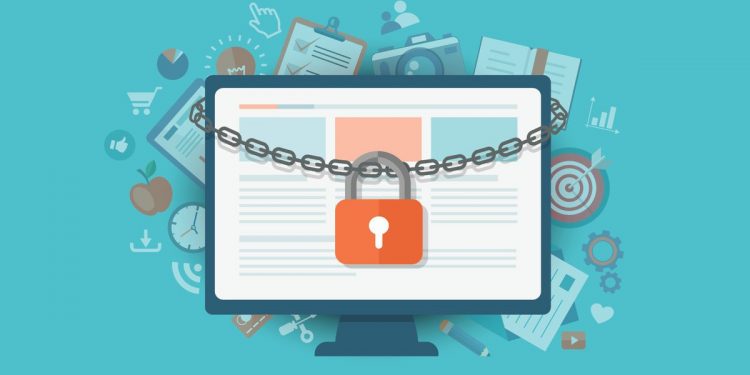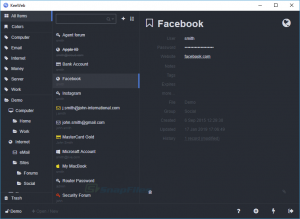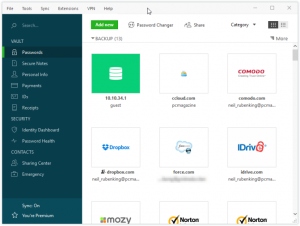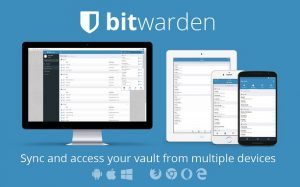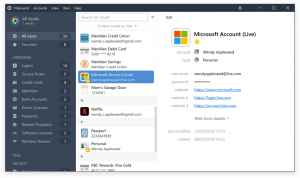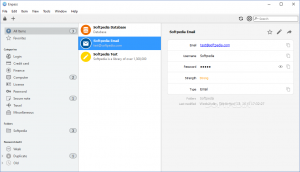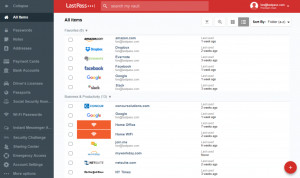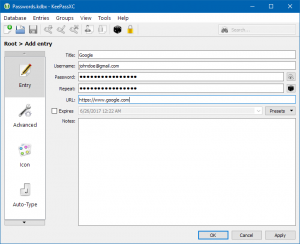Here are some Best Password Managers Free and Paid because Your passwords are The only thing that protects your online accounts from cybercriminals. If you are like most people, you reuse the same weak passwords over and over again, creating a ticking time bomb that can explode at any moment and leave your personal information completely exposed.
Are you not convinced yet? So Then consider that compromised passwords were responsible for 80% of hacking-related breaches in 2018, according to the Verizon Data Breach Incident Report. This number is so high because 66 percent of people use the same password for different or all accounts, as was exposed by a 2019 online security survey by Google.
Unless you like to become a cybersecurity statistic, you must use a unique complex password for every one of your accounts, and also a Password Managers can help you accomplish this task and offer other many valuable benefits.
Are Password Managers Safe?
Yes, Password Managers are safe; you should use them to make it importantly more difficult for hackers to breach your accounts and also obtain your sensitive information.
So The typical Password Managers store all your passwords in an encrypted database that can be decrypted after the correct master password has been providing. Even though if hackers managed to steal the whole encrypted database, they would not be able to take off any passwords from it.
So As long as you use a strong master password and don’t write it anywhere, then a password manager will always be much safer than using the same couple of weak passwords over and over again.
Top 7 Best Password Managers in 2020
There are several Good apps and web services for which you need to set Secure passwords, like your social media accounts, e-mail, online purchasing, electronic banking accounts, etc.
1. KeeWeb
2. Dashlane
3. 1Password
4. Bitwarden
5. Enpass
6. LastPass
7. KeyPassXC
KeeWeb
KeeWeb is a completely free Password Manager found as KeePass. It has a perfect looking user interface with advanced search options, password history, support for shortcuts, tags, and the ability to include attachments by merely dropping and dragging them right to the application.
The desktop version of the KeeWeb app works on all extensive platforms, and the online version is approachable from any modern web browser. So KeeWeb lets you open files from Dropbox, you can easily synchronize your passwords across the devices. Because KeeWeb always saves your data for offline use, you will be able to retrieve all your passwords even if something happens with Dropbox.
Dashlane
Being one of the most working YouTube sponsors, Dashlane is an excellent password manager. It can offer a polished user interface, flawless autofill, multiple two-factor authentication options, friendly pricing, and extensive knowledge base that explains all of its covers and features security-related topics additionally.
Unlike the preceding two Password Managers, Dashlane more or less needs its users to purchase a premium subscription because the free plan is limited to 60 password entries, which one may sound like a lot, it is not.
The premium subscription of the plan costs $3.33 a month, and it gives you unlimited password storage, the ability to synchronize your passwords across all devices, dark web monitoring with personalized alerts priority customer support, and VPN for Wi-Fi protection.
Bitwarden
Bitwarden is my favorite Password Manager in December 2019 because it is secure, open-source, and free. It runs on Windows, Linux, Android, and iOS, macOS, and there is also a web version that you can access from any device with a modern internet browser.
Let’s started with Bitwarden. So You don’t require to spend any money, but there is also a premium version with some extra features. In just $10 a year, the premium version includes 1 GB of encrypted file storage, additional two-step authentication options, vault health reports, and password hygiene TOTP authenticator key storage and code generator, and also priority customer support.
Although the free version of Bitwarden comes with everything, you have to generate secure passwords, access them from any device, and safely store them in the cloud. Bitwarden encrypts all the passwords with end-to-end AES-256 bit encryption, PBKDF2 SHA-256, and salted hashing, which are military-grade encryption standards used by governments around the world to protect some of the most sensitive information in existence.
1Password
1Password is a graceful Password Manager that gives a value-oriented subscription plan for a familiar that understand the importance of utilizing strong passwords. It is available across Windows, iOS, Android, and macOS, with all versions being equally effortless to use.
1Password has an automatic form filler that permits you to sign in with one click. The Watchtower feature has proactively monitored password breaches and lets you know if any services you are using has been compromising.
While you can try 1Password for free of cost, there is no open plan to choose once the trial period is over. So The most affordable subscription plan costs $2.99 a month, but you should consider the more expensive family plan $4.99, which lets you share your subscription with up to 5 other people.
Enpass
Enpass is a related primary Password Manager with support for most platforms, a robust password generator, and the option to protect your data using fingerprint or facial recognition. Enpass stores password locally on your device, but it also allows you to synchronize them via any cloud account, such as Dropbox, Google Drive, or Box.
Enpass has a unique pricing structure because it is free to use without any substantial limitations on desktop devices but not on mobile devices. To store more than 26 passwords on a tablet or smartphone, you need to purchase the premium plan for $1.49 a month/$17.99 annually.
There is also a one-time purchase option, which unlocks full access on mobile devices and desktop PCs for a single fee of $53.99. We recommend you to choose the unique purchase option only when you are 100% certain that Enpass is the right password manager for you.
LastPass
LastPass is a remarkable multi-platform Password Manager with extensions for just about every internet browser. You can either use the free of charge version of LastPass or may purchase a premium subscription plan for $3 a month.
So Upgrading to LastPass Premium unlocks emergency access to your most dominant information in case of an emergency, one-to-many password sharing, advanced multi-factor options, password autofill on Windows machines, 1 GB of encrypted file storage, and priority customer support.
LastPass has been around 2008, and it shouldn’t come as a surprise so that it experienced many security incidents in the past. What is essential, Though, is that no security incident caused encrypted user vault data to be exposed, and LastPass was always easy to take appropriate measures to prevent similar events from happening again in the future.
KeyPassXC
KeePassXC is also an open-source Password Manager that permits you to securely keep an encrypted database with all your passwords on your macOS, Windows, or Linux PC. It is a fork of another famous password manager called KeePassX, which is a fork of the original KeePass.
So KeyPassXC is entirely free of cost, and you can use it on as many computers as you want. Has the most significant limitation is the fact that it doesn’t support password synchronization, so you need to come up with your solution.
Many KeyPassXC users rely on Dropbox, Microsoft OneDrive, or Google Drive to keep their passwords synchronized between devices, while others use a networked storage device or a USB flash drive.
ALSO CHECK:
1. File and Folder Locker Tools
2. Privacy Focused Browsers
Final Words :
Using a Password Manager, specifically with a lot of around that deal totally free plans covering all your demands, will surely go far in producing that very first layer of security for all your accounts.
So Which one is your favorite Best Password Managers? Have you Checked any number of the password managers from this list?

